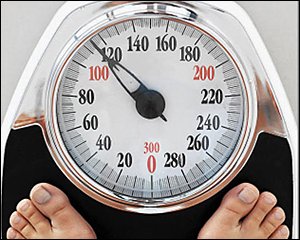 Here’s the score: To lose weight you do not need to do hours upon hours of exercise every week. In fact, some people are actually exercise non-responders, simply meaning that even if they do a lot of exercise their bodies do not reap the rewards.
Here’s the score: To lose weight you do not need to do hours upon hours of exercise every week. In fact, some people are actually exercise non-responders, simply meaning that even if they do a lot of exercise their bodies do not reap the rewards.
So, if hours in the gym is not the answer to losing weight, what is? Well, in short it is simple – eat less and be more active.
More active you say? Hang on, isn’t that the same as exercising? Well, no. Another problem with exercise is that most people tend to overestimate how effective it is at burning calories.
For example, if you do spend an hour in the gym you may burn around 500 Calories, if you push yourself hard. Many people will only burn around 300 Calories though, as much of the time is spent getting changed, talking, resting, watching the big screens and waiting for machines!
Why Burning 500 Calories a Day is Not Always Enough
But let’s assume, for the sake of this argument, that you burn 500 Calories in the gym. On top of this you do get the after-burn effect where your body continues to burn more calories after you exercise. Research has shown that if you perform 45 minutes of exercise your body increases its metabolism for the next 14 hours and you can burn an additional 250 Calories after you have left the gym.
This all sounds good, but there are some big problems. Firstly, most people do not go to the gym every day, so this additional calorie burning is only taking place two or three times a week. However, most people do not adjust their diet each day. In fact, some people eat more food on the day after going to the gym in the mistaken belief that they need more energy as they exercised! This of course leads to weight gain, not weight loss.
Why You Need To Change Your Diet
Secondly, if diet is not adjusted you continue to eat too much. Many obese people are consuming around 1000 Calories a day too much, so even if they start burning off an additional 750 Calories a day with exercise and the after-burn effect combined, they are still taking in 250 Calories a day too much. This means that they continue to gain weight.
This may sound fat fetched, but every year thousands upon thousands of people start weight loss plans and fail to lose weight because of this. They do a little exercise and make some small adjustments to diet, but overall diet and lifestyle remain relatively unchanged.
So, back to the main topic – losing weight in 20 minutes a day. Here is the plan. Firstly, plan to exercise for 15 minutes a day. This should be 15 minutes of intensive exercise in an interval training regime. This means that in the 15 minutes you will be sprinting as fast as you possibly can for 30 seconds and then recovering for 60 seconds before repeating the sprint. Allow the first 4 minutes to warm up though. This form of exercise is best done on a fitness machine, such as an elliptical, cycle or rower.
Spend 5 Minutes Planning Your Meals Each Day
The other 5 minutes each day is spent planning your meals. Yes, take time every day to plan your breakfast, lunch and dinner. This way you can plan to not snack, plan to eat a healthy diet and plan to avoid temptations. Most people fail to lose weight as a result of emotional eating – this is when you eat without thinking at times of stress or upset.
If you do this you will lose weight. By reducing calories but maintaining a healthy diet and getting 15 minutes of intensive exercise every day (yes, every day, that is 7 days a week, not 3 days or 5 days!) you can lose weight. Reversing years of weight gain requires a constant effort on your part. For each day that you slip up you risk not losing weight for the whole week. This may sound extreme, but bear in mind that weekly weight loss requires a daily calorie deficit of about 500 Calories. One big weekend binge with junk food, pizza, ice-cream, chocolate and alcohol can easily see you consume 3000 Calories in one day, destroying your chances of losing weight completely.
So, 20 minutes a day, every day, 365 days a year. That is your weight loss strategy.
About the author: Jon Wade is studying health sciences and focuses on the biology and psychology of weight loss. He provides advice and support through his website, so if you are looking for more tips on how to lose weight then head on over to MotleyHealth.com where all your questions can be answered.